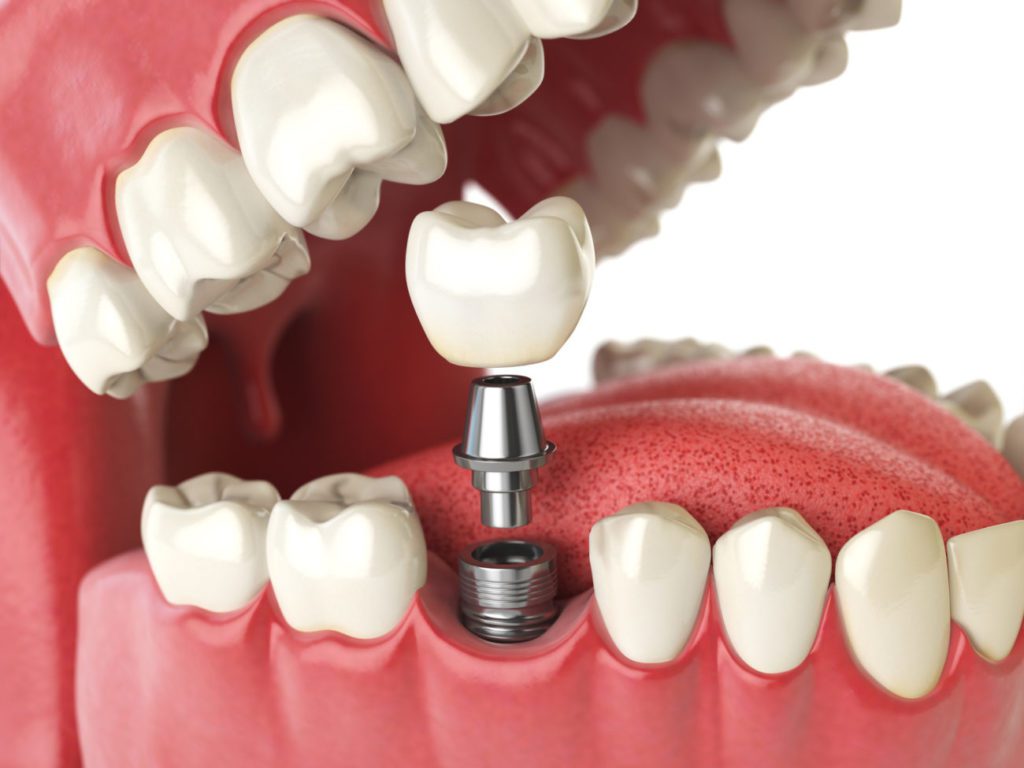Millions of people across the United States are missing at least one tooth. A missing tooth is more than just a cosmetic issue. It’s also an oral health issue. It will affect your chewing function, forcing you to avoid certain foods. With your bite, every tooth counts.
Just one missing tooth will lead to bone loss because stimulation to gum and bone stops without the tooth. Also, this causes the neighboring teeth to collapse or shift towards the void. Once your teeth are out of alignment, many issues can surface, such as a TMJ disorder, gum disease, and tooth decay.

Replacing a Missing Tooth
Our Baltimore dentist office, Cosmetic & Advanced Dentistry, offers a few options to help patients replace missing teeth. The traditional method to replace a single missing tooth is a dental bridge. A bridge consists of two anchor crowns with the replacement tooth (the pontic) in the middle, all fused together.
The dentist cements the two crowns to two anchor teeth, which are located on each side of the missing tooth. This will literally “bridge” the gap created by a missing tooth. Your second option is an implant-secured dental crown.
Dr. Ed Lazer prefers that his patients get dental implants versus other dental restorations because they are the most natural tooth replacement option.
Dental Implant-Secured Crown
A dental implant is actually a cylinder titanium post that a periodontist or dental surgeon surgically implants into the jaw bone. Cosmetic & Advanced Dentistry is a full-service dental implant office in Baltimore. Dr. Doroshenko is a periodontist with a special focus on implantology and provides complete services in our Baltimore dental office.
After the surgery, you will need about three to six months to heal and allow the implant to fuse with the surrounding bone. Once your mouth heals, you will return to our office, where Dr. Doroshenko will attach an abutment to the implant. After about two weeks, we will finally permanently place your dental crown.
Dental Implant Versus A Traditional Dental Bridge
Breaking down the similarities and differences between the two available options will show you how a dental implant offers many more benefits than a dental bridge. After a thorough evaluation, Dr. Doroshenko will be able to let you know if you qualify for an implant or if a bridge is a better route for you.
An implant actually replaces the tooth root, which will preserve the bone better, thus preventing bone loss. Your neighboring teeth do not need to be ground down with dental implants. With a traditional dental bridge, the dentist must grind down the anchor teeth to make room for the two dental crowns.
An implant replaces only the single tooth and does not involve the neighboring teeth. In the long run, an implant-supported crown is easier to care for and will last much longer. While the implant post will last a lifetime, you may need to replace the dental crown every fifteen years. But it can last a lifetime if cared for properly.
Not everyone will qualify for dental implants. Generally speaking, a good candidate for a dental implant is in optimum health and possesses sufficient jaw bone structure for the titanium screw or post.
The dental implant process will take longer than the dental bridge process. While you can have a bridge placed in about two to three weeks, the dental implant process can take up to seven months. Also, the cost of a dental implant is much higher than the cost of a bridge. When comparing the two options, you must consider the long-term benefits and quality of life.
Single Tooth Dental Implant FAQs
Read answers to common patient questions about single implants below:
Can I get a single implant if I have receding gums?
Yes, you can still receive an implant if you have receding gums. We will recommend periodontal treatment to remove bacteria from your gum tissue and gum grafting to add healthy gum tissue to receded gums. Once you are healed and in good oral health, we can begin planning your implant treatment.
Who is a good candidate for a single tooth dental implant?
Patients who are good candidates for single tooth implants have one missing tooth, have sufficient jaw bone to support a dental implant, and are in good oral health. We can help patients become good implant candidates by suggesting bone grafting to add healthy jaw bone where needed.
Our office may also recommend gum disease treatment, root canal therapy, and other treatments to ensure that patients are healthy and not at risk of tooth decay or gum disease.
What is the success rate of single tooth dental implants?
Dental implants have a success rate of over 95 percent. Implants are made of high-quality titanium and easily integrate with the jawbone over three to six months. Dr. Lazer expertly places dental implants and maximizes natural and grafted bone tissue for the best placement and function. We also ensure that patients are prepared for implants before the procedure and stay healthy during the implant process.
How painful is it to get one dental implant?
You will not feel pain during implant treatment because we use an anesthetic to numb the treated area. Once the anesthetic wears off, you will take pain medication and use ice packs to reduce discomfort and swelling. After a week or two, you should no longer feel discomfort from your implant placement.
How long does it take to get a single dental implant?
Dental implant surgery to place a single dental implant can take one to two hours. After we place your dental implant, it will take three to six or more months for the implant anchor to fully heal. The dental implant needs time to integrate with the jaw bone and become a solid part of your smile.
Are single dental implants worth it?
Yes, if you have a single missing tooth, we will recommend a single dental implant over alternatives like dental bridges. While dental implants require more time to heal fully, they are worth it for many patients because they offer lasting support.
Dental implants restore missing teeth at the root, prevent shifting teeth, and improve bite function, among many other benefits. Implants are also permanent; as long as you care for your implant, it should last for years.
Learn More About Dental Implants
